13 Japanese Habits Indians Should Steal
Riya Kumari | Feb 08, 2025, 22:13 IST
( Image credit : Timeslife )
The Japanese, with their deep-rooted sense of discipline, mindfulness, and respect for the ordinary, have mastered this philosophy. Their culture isn’t just about efficiency; it’s about balance, a way of living that isn’t rushed, excessive, or careless. And perhaps, if we paid attention, we could learn something truly life-changing. If you take away anything from this, let it be this: life is not changed by one big moment. It is shaped by the small things you do every day, the invisible disciplines that no one applauds but define who you are. So, which habit will you start with?
Somewhere between the noise of daily life and our endless pursuit of “success,” we forget that the simplest habits hold the greatest power. We chase productivity hacks, diet trends, and self-improvement fads, overlooking the fact that a well-lived life isn’t built on extremes—it’s built on small, intentional choices repeated daily.
1. Clean Your Toilet Every Morning

Japanese folks believe that cleaning your toilet brings luck, fortune, and—wait for it—money. That’s right. The richest people in Japan scrub their own toilets, and here we are avoiding the chore like it’s cursed. Maybe it’s time we start treating our washrooms like prosperity magnets instead of battle zones.
In Japan, even the wealthiest people clean their own bathrooms, not because they have to, but because it keeps them humble. It’s a reminder that no task is beneath you. It sets the tone for the day: start by taking care of the things no one sees, and life has a way of rewarding you in unexpected ways.
2. Say “Arigato” More

Gratitude isn’t just about feeling thankful; it’s about acknowledging the invisible effort behind everything we receive. The Japanese thank not just people, but the rice they eat, the hands that prepared their meal, even the life of an animal that nourishes them. Imagine what would change if we saw the world through that lens—if we realized that nothing we have exists in isolation.
Japanese culture teaches people to appreciate every step of the process, and honestly, it’s a much better vibe than our usual take everything for granted until it’s gone approach.
3. Alternating Showers

A hot shower followed by a 30-second cold rinse, then back to warmth—this practice resets the nervous system, improves circulation, and strengthens mental resilience. But more than that, it’s a metaphor: comfort and discomfort exist together, and only by embracing both do we grow. The shock of cold water, like the challenges in life, is momentary—but what it leaves behind is lasting strength.
It resets your body, improves your skin, and makes you mentally tougher. If nothing else, it’ll definitely wake you up faster than your fifth snooze button tap.
4. The Art of Preparing Matcha
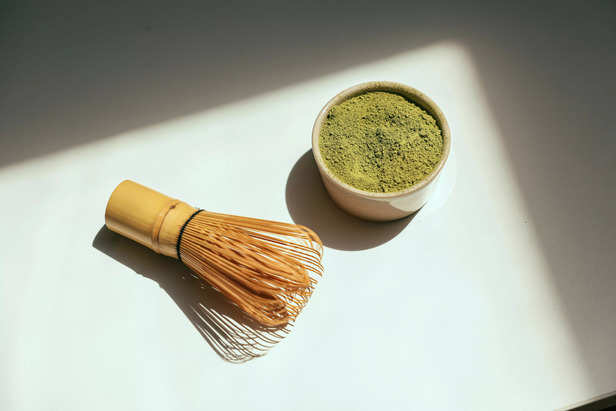
In Japan, preparing matcha is a ritual. The powder is sifted, whisked, and poured with care. Nothing about it is rushed. Because the act of making something with presence is as important as consuming it. In a world that glorifies speed, slowness is a rebellion. And sometimes, simply making tea the right way is enough to remind you what being present really feels like.
Japanese mornings start with matcha—prepared slowly, with intention, like a mini-meditation
5. Fermented Food
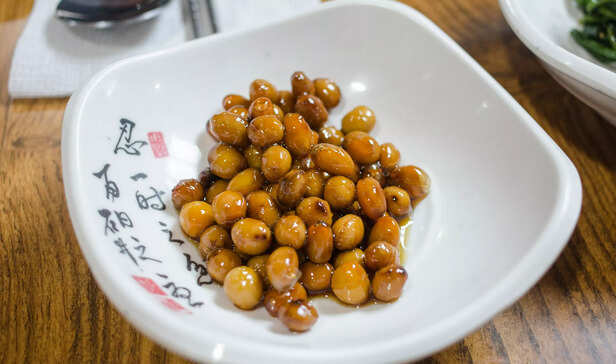
Miso, natto, koji—fermented foods are staples in Japan, not just for taste, but for health. The gut, often called the “second brain,” controls immunity, mood, and digestion. And yet, we ignore it, feeding it stress and fast food. The lesson here isn’t just about diet; it’s about care. Your body speaks—are you listening?
Science agrees. Probiotics = happy gut = happy you. Next time you’re tempted to eat instant noodles for dinner, maybe throw in a little curd rice instead?
6. Breakfast Like You Respect Your Body
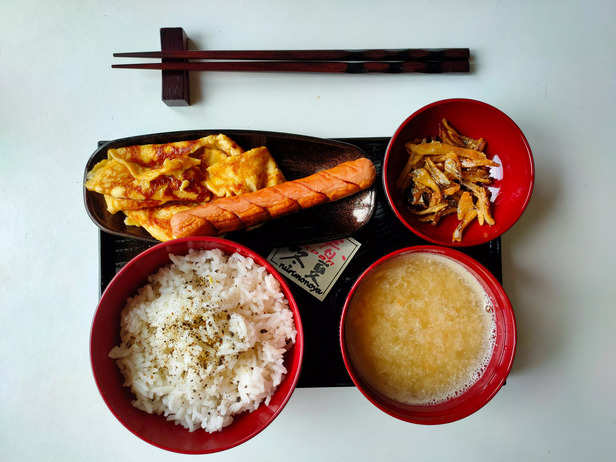
While we settle for a rushed coffee or a half-hearted snack, the Japanese eat a balanced, nourishing breakfast—rice, miso soup, eggs, pickles, and fish. Their meals are colorful, nutrient-dense, and fulfilling. Not because it’s trendy, but because it makes sense. If your first meal sets the foundation for your energy, why would you neglect it?
7. Eat Until You’re 80% Full
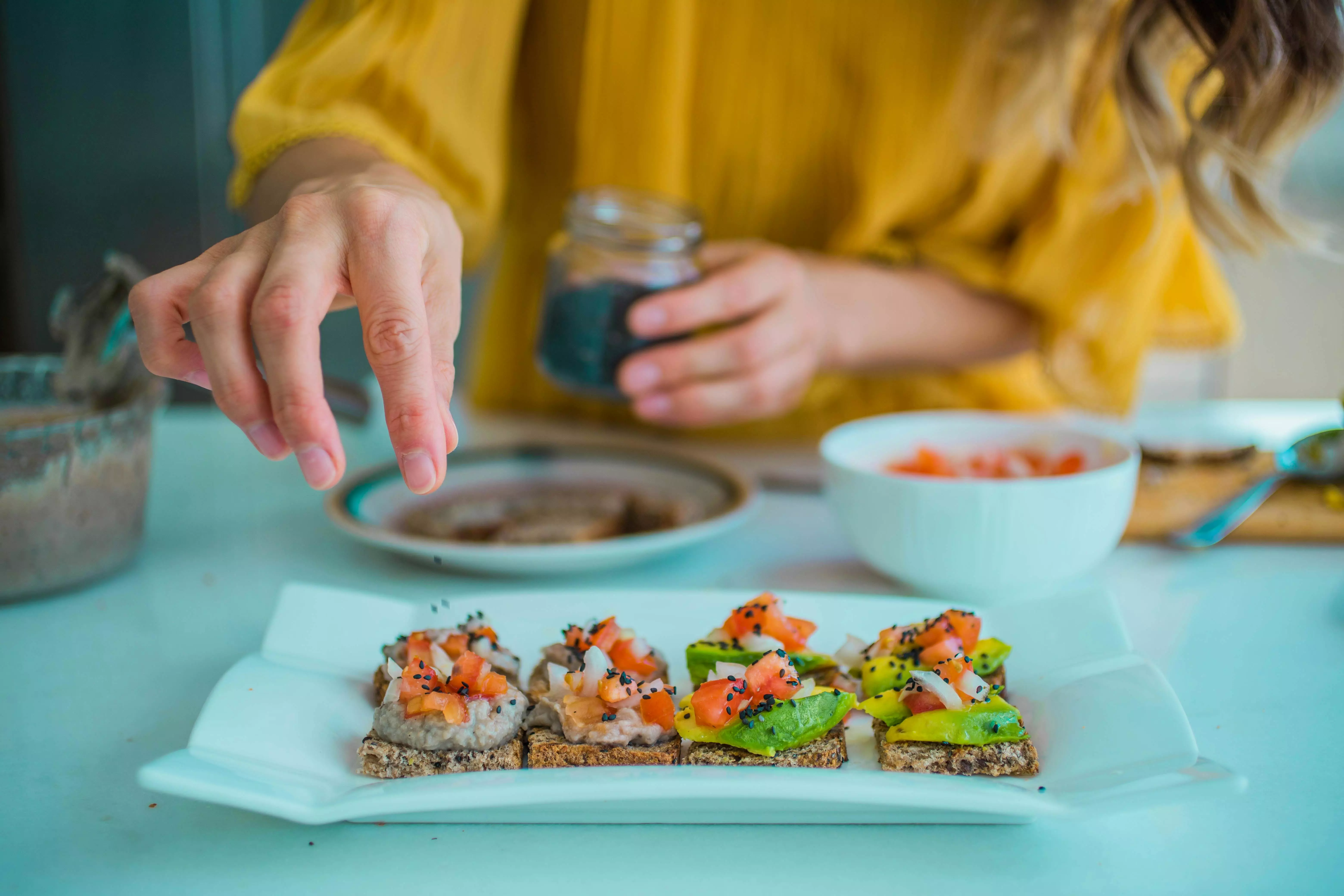
The Japanese practice hara hachi bu—eating until they are satisfied, not stuffed. It’s a simple but profound lesson: more isn’t always better. Overindulgence, in food or in life, only weighs you down. Stop before you are full, and you’ll realize you never needed as much as you thought.
Instead of stuffing yourself to the point where breathing is a struggle (been there), just stop when you’re almost full. You’ll finally know what it’s like to leave a meal feeling satisfied instead of mildly regretful.
8. Vinegar in Everything

Vinegar is used in Japanese cooking not just for taste, but for health. It aids digestion, stabilizes blood sugar, and boosts metabolism. It’s a small, daily habit with a long-term impact—like most good things in life. Change doesn’t come from massive overhauls; it comes from the smallest things you choose to do consistently.
Japanese food incorporates vinegar into daily meals—dressings, dumplings, hot pots, you name it.
9. Hiking Mountains

Japan has mountains. Japan also has people who regularly hike up those mountains and live to tell the tale. Coincidence? I think not.
Japan isn’t just about neon lights and bullet trains; it’s also about mountains. Hiking isn’t just exercise—it’s a way of life. The air is cleaner, the mind is clearer, and there’s something about being surrounded by nature that resets everything. In a world that constantly overstimulates us, maybe we need to step away and find silence again.
10. An Organized Space
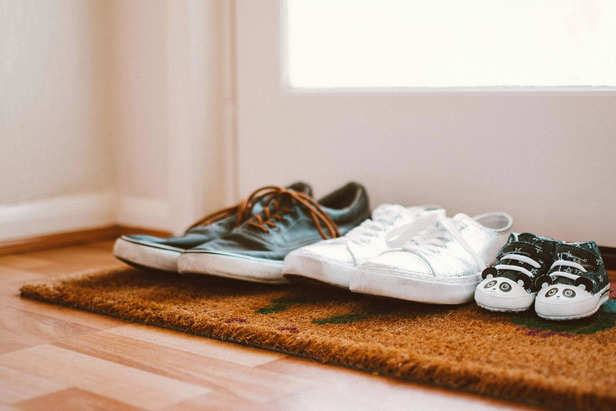
There’s a reason a cluttered room makes you feel anxious—it reflects mental chaos. The Japanese practice of tidiness is not just about aesthetics; it’s about clarity. Keeping shoes arranged outside a room, maintaining a minimalist home—these are not small habits; they are silent disciplines that create order in life. Because when your surroundings are in harmony, your thoughts follow.
Minimalism isn’t just an aesthetic, it’s a lifestyle. Just imagine—walking into a space where everything has its place and you’re not tripping over a pile of clothes that "just didn’t feel right" this morning.
11. Fix Your Posture

Ever seen someone in a kimono? That straight back isn’t just for looks—it’s a way of life. Slouching is the enemy, and walking mindfully instead of dragging yourself around like an overworked employee might just save your spine.
The way you hold yourself shapes the way you move through life. A slouched back signals fatigue, disinterest, and carelessness. The Japanese pay close attention to posture—through kimonos, through mindful walking—because they know that how you carry yourself externally affects how you feel internally. Confidence isn’t just about the mind; it starts in the body.
12. Return the Chair to Its Place
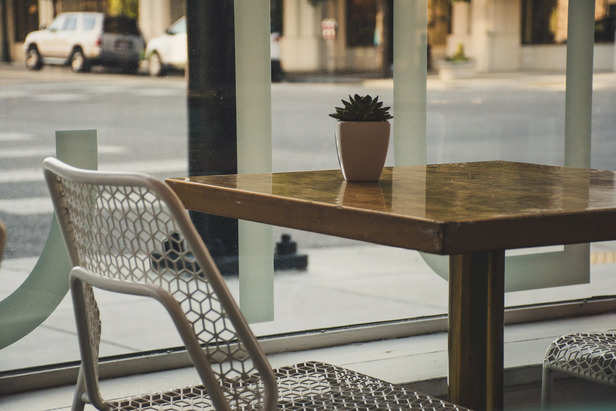
Ever left a chair slightly out of place and thought, “Eh, someone else will fix it”? In Japan, people don’t do that. They push the chair back even when they’re tired, because being considerate isn’t optional.
Discipline is not about grand gestures; it’s about the smallest things you do when no one is keeping score. In Japan, people instinctively push back chairs, clean up after themselves, and leave spaces exactly as they found them. Not because they have to, but because it is a mark of respect—not just for others, but for themselves.
13. Sleep Early, Wake Up Early

Japan runs on early mornings. Meanwhile, we’re out here binge-watching shows till 3 AM and wondering why we wake up looking like sleep-deprived zombies.
The difference between a chaotic life and a peaceful one often comes down to the first hour of your day. The Japanese rise early, not to grind, but to exist in stillness before the world demands their attention. Late nights may feel productive, but they steal from the next day. And in the end, it’s not about how many hours you stay awake; it’s about how well you live the ones you have.
Learn, Adapt, But Make It Your Own
This isn’t about becoming Japanese. It’s about recognizing wisdom where it exists and applying it in ways that make sense for us. These aren’t just habits; they’re philosophies—ways of treating your body, your mind, and your environment with respect. And the best part? Change doesn’t require some dramatic overhaul. It starts with the smallest choices. Maybe it’s cleaning your space with intention. Maybe it’s drinking matcha instead of chugging your fourth cup of coffee. Maybe it’s just pushing in your chair. So, which habit will you steal first?
1. Clean Your Toilet Every Morning

Washroom
( Image credit : Pexels )
Japanese folks believe that cleaning your toilet brings luck, fortune, and—wait for it—money. That’s right. The richest people in Japan scrub their own toilets, and here we are avoiding the chore like it’s cursed. Maybe it’s time we start treating our washrooms like prosperity magnets instead of battle zones.
In Japan, even the wealthiest people clean their own bathrooms, not because they have to, but because it keeps them humble. It’s a reminder that no task is beneath you. It sets the tone for the day: start by taking care of the things no one sees, and life has a way of rewarding you in unexpected ways.
2. Say “Arigato” More

Thanks
( Image credit : Pexels )
Gratitude isn’t just about feeling thankful; it’s about acknowledging the invisible effort behind everything we receive. The Japanese thank not just people, but the rice they eat, the hands that prepared their meal, even the life of an animal that nourishes them. Imagine what would change if we saw the world through that lens—if we realized that nothing we have exists in isolation.
Japanese culture teaches people to appreciate every step of the process, and honestly, it’s a much better vibe than our usual take everything for granted until it’s gone approach.
3. Alternating Showers

Shower
( Image credit : Pexels )
A hot shower followed by a 30-second cold rinse, then back to warmth—this practice resets the nervous system, improves circulation, and strengthens mental resilience. But more than that, it’s a metaphor: comfort and discomfort exist together, and only by embracing both do we grow. The shock of cold water, like the challenges in life, is momentary—but what it leaves behind is lasting strength.
It resets your body, improves your skin, and makes you mentally tougher. If nothing else, it’ll definitely wake you up faster than your fifth snooze button tap.
4. The Art of Preparing Matcha

Matcha
( Image credit : Pexels )
In Japan, preparing matcha is a ritual. The powder is sifted, whisked, and poured with care. Nothing about it is rushed. Because the act of making something with presence is as important as consuming it. In a world that glorifies speed, slowness is a rebellion. And sometimes, simply making tea the right way is enough to remind you what being present really feels like.
Japanese mornings start with matcha—prepared slowly, with intention, like a mini-meditation
5. Fermented Food

Natto
( Image credit : Pexels )
Miso, natto, koji—fermented foods are staples in Japan, not just for taste, but for health. The gut, often called the “second brain,” controls immunity, mood, and digestion. And yet, we ignore it, feeding it stress and fast food. The lesson here isn’t just about diet; it’s about care. Your body speaks—are you listening?
Science agrees. Probiotics = happy gut = happy you. Next time you’re tempted to eat instant noodles for dinner, maybe throw in a little curd rice instead?
6. Breakfast Like You Respect Your Body

Japanese food
( Image credit : Pexels )
While we settle for a rushed coffee or a half-hearted snack, the Japanese eat a balanced, nourishing breakfast—rice, miso soup, eggs, pickles, and fish. Their meals are colorful, nutrient-dense, and fulfilling. Not because it’s trendy, but because it makes sense. If your first meal sets the foundation for your energy, why would you neglect it?
7. Eat Until You’re 80% Full

Eat
( Image credit : Pexels )
The Japanese practice hara hachi bu—eating until they are satisfied, not stuffed. It’s a simple but profound lesson: more isn’t always better. Overindulgence, in food or in life, only weighs you down. Stop before you are full, and you’ll realize you never needed as much as you thought.
Instead of stuffing yourself to the point where breathing is a struggle (been there), just stop when you’re almost full. You’ll finally know what it’s like to leave a meal feeling satisfied instead of mildly regretful.
8. Vinegar in Everything

Vinegar
( Image credit : Pexels )
Vinegar is used in Japanese cooking not just for taste, but for health. It aids digestion, stabilizes blood sugar, and boosts metabolism. It’s a small, daily habit with a long-term impact—like most good things in life. Change doesn’t come from massive overhauls; it comes from the smallest things you choose to do consistently.
Japanese food incorporates vinegar into daily meals—dressings, dumplings, hot pots, you name it.
9. Hiking Mountains

Hiking
( Image credit : Pexels )
Japan has mountains. Japan also has people who regularly hike up those mountains and live to tell the tale. Coincidence? I think not.
Japan isn’t just about neon lights and bullet trains; it’s also about mountains. Hiking isn’t just exercise—it’s a way of life. The air is cleaner, the mind is clearer, and there’s something about being surrounded by nature that resets everything. In a world that constantly overstimulates us, maybe we need to step away and find silence again.
10. An Organized Space

Shoes
( Image credit : Pexels )
There’s a reason a cluttered room makes you feel anxious—it reflects mental chaos. The Japanese practice of tidiness is not just about aesthetics; it’s about clarity. Keeping shoes arranged outside a room, maintaining a minimalist home—these are not small habits; they are silent disciplines that create order in life. Because when your surroundings are in harmony, your thoughts follow.
Minimalism isn’t just an aesthetic, it’s a lifestyle. Just imagine—walking into a space where everything has its place and you’re not tripping over a pile of clothes that "just didn’t feel right" this morning.
11. Fix Your Posture

Posture
( Image credit : Pexels )
Ever seen someone in a kimono? That straight back isn’t just for looks—it’s a way of life. Slouching is the enemy, and walking mindfully instead of dragging yourself around like an overworked employee might just save your spine.
The way you hold yourself shapes the way you move through life. A slouched back signals fatigue, disinterest, and carelessness. The Japanese pay close attention to posture—through kimonos, through mindful walking—because they know that how you carry yourself externally affects how you feel internally. Confidence isn’t just about the mind; it starts in the body.
12. Return the Chair to Its Place

Chair
( Image credit : Pexels )
Ever left a chair slightly out of place and thought, “Eh, someone else will fix it”? In Japan, people don’t do that. They push the chair back even when they’re tired, because being considerate isn’t optional.
Discipline is not about grand gestures; it’s about the smallest things you do when no one is keeping score. In Japan, people instinctively push back chairs, clean up after themselves, and leave spaces exactly as they found them. Not because they have to, but because it is a mark of respect—not just for others, but for themselves.
13. Sleep Early, Wake Up Early

Wake up
( Image credit : Pexels )
Japan runs on early mornings. Meanwhile, we’re out here binge-watching shows till 3 AM and wondering why we wake up looking like sleep-deprived zombies.
The difference between a chaotic life and a peaceful one often comes down to the first hour of your day. The Japanese rise early, not to grind, but to exist in stillness before the world demands their attention. Late nights may feel productive, but they steal from the next day. And in the end, it’s not about how many hours you stay awake; it’s about how well you live the ones you have.
